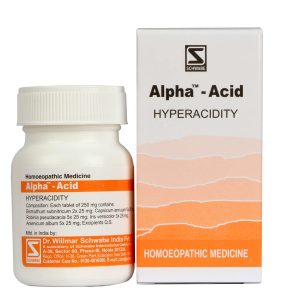
7 Simple Ways to Manage Digestive Problems
- Dr. Aditi Sharma
- May 27, 2021
- No Comments

Digestive problems refer to diseases or disorders affecting the gastrointestinal tract or digestive tract. This digestive tract comprises of food pipe or esophagus, stomach, small intestine, large intestine, liver, gall bladder, and pancreas. Digestive problems are very common and affect people of both genders and all age groups. The nature of such diseases may range from mild to serious.
What causes digestive problems?
The various causes of digestive system problems are: –
- Eating a low-fiber diet.
- Not getting adequate exercise.
- Travelling or other changes in daily routine.
- Eating large quantities of dairy products.
- Mental stress.
- Resisting the urge to pass stools, possibly due to haemorrhoids.
- Overuse of anti-diarrheal medications, eventually, weaken the muscle movements of the bowel called motility.
- Taking antacid medications containing calcium or aluminium.
- Taking certain medicines such as antidepressants, strong pain medicines such as narcotics, and iron pills.
- Pregnancy.
What are the symptoms of various digestive problems?
Digestive system disorders can have the following symptoms:-
- Bleeding from any part of the digestive tract
- Bloating of the abdomen
- Constipation
- Diarrhoea
- Heartburn
- Incontinence of stools
- Nausea and vomiting
- Pain in the abdomen
- Swallowing problems
- Weight loss or gain issues
What are various ways to manage digestive problems?
7 simple ways to manage digestive problems are as follows:
1. Find out the digestive triggers
As the digestive problem triggers vary from person to person try to find out your own triggers. These triggers may include: –
- Certain foods and beverages such as coffee, dairy products, and carbonated drinks.
- Eating patterns
- Medications (prescription and over-the-counter)
- Certain events and situations such as travel, menstrual period, etc.
To do this, keep a journal to record what you eat and drink, what medications and supplements you take, and various daily events. Eventually, this may help find a correlation between one or more of these trigger factors and the occurrence of digestive problems.
2. Have a balanced diet
A balanced diet helps to prevent digestive problems and ease the symptoms if they occur. One should keep the following points in mind:
- Add more fiber to the diet gradually. Fiber adds bulk to stools, which regulates digestion. Gradually increase fiber intake to prevent gas, bloating, and diarrhoea.
- Eat small meals several times throughout the day. This prevents the sudden contractions of the bowels that a large meal size can cause.
Also Read Why Does Digestive System Play A Key Role In Maintaining Your Overall Health?
3. Drink plenty of water
Water helps in normal bowel function. It also keeps stools soft yet solid and well-formed. For this
- Take water and sports drinks (which contain minerals called electrolytes).
- Avoid excessive caffeine and alcohol consumption.
- Avoid contaminated water and use bottled water or juice. Also make sure that the contaminated water is not used to make coffee, tea, ice, and popsicles and to wash raw fruit and vegetables.
4. Practice Healthy Hygiene methods
Always thoroughly wash hands with soap and warm water before eating or preparing food and after using the washroom.
5. Manage Stress for healthy digestion
To avoid stress, one can practice mind relaxation techniques. These include pursuing any favorite hobby, yoga, meditation, or exercise.
As all stress cannot be avoided, take the help of a friend or a therapist to help find ways to tackle adverse situations and relationships.
6. Support for Digestive issues
Instead of hiding digestive problems from caregivers, family and friends make them understand your digestive problems. Let them know what they can do to support you practically and emotionally.
Many times a support group (in person or online) helps in exchanging ideas and support.
7. Be in Charge of Your Digestive issues
Partner with your doctor and ask questions about your problem and treatment plan. Inform the doctor if the medicines prescribed are ineffective or cause side effects. Inform your doctor before trying supplements or over-the-counter medicines. In case of any experiences or questions do discuss them with your doctor.
Also Read Acidity In Night - How Can You Stop Acidity At Night?
How can digestive problems be diagnosed?
Various means to diagnose the cause of digestive problems are: –
- Colonoscopy
- Upper GI endoscopy,
- Capsule endoscopy,
- Endoscopic retrograde cholangiopancreatography (ERCP), and
- Endoscopic ultrasound
What are various homeopathic medicines for indigestion?
Homeopathy provides the best and safe treatment for various digestive problems. Well-selected constitutional medicine that is the most similar to the disease manifestation is the best homeopathic medicine for indigestion. For this, a trained homeopathic physician takes detailed case history and elicits symptoms from the mental and physical sphere. The past medical history of the patient as well as his family history may be probed to find out the root cause of the digestive problem. Apart from this, there are several commonly indicated homeopathic medicines for indigestion that can also be helpful.
-
 Dr Willmar Schwabe India DizesterSale Product on sale
Dr Willmar Schwabe India DizesterSale Product on sale₹125.00₹102.50Rated 4.79 out of 5 based on 19 customer ratings -
 Dr Willmar Schwabe India Alpha-DPSale Product on sale
Dr Willmar Schwabe India Alpha-DPSale Product on sale₹210.00₹172.20Rated 4.86 out of 5 based on 7 customer ratings -
 Dr Willmar Schwabe India Alpha – AcidSale Product on sale
Dr Willmar Schwabe India Alpha – AcidSale Product on sale₹210.00₹172.20Rated 4.56 out of 5 based on 16 customer ratings
Conclusion
Thus we can see that digestive problems are myriad and have many causes. They occur very commonly and in people of all ages and both genders. They can range from mild to serious in intensity. Bleeding, pain, bloated abdomen, nausea and vomiting, weight loss or gain, and incontinence of stools are some of the common symptoms of digestive problems. These digestive problems can be well treated with homeopathic medicines. Some measures can help to prevent the occurrence of digestive problems. These mainly include having a balanced diet, plenty of water, and following good hygiene practices. In case of any occurrence of digestive trouble, one must be in charge and observe for any trigger factors. These should be well communicated to the physician. Management of stress through suitable mind relaxation techniques and being open to caregivers about one’s condition can significantly help in dealing with digestive problems. One can even join a support group of people with similar issues. This can ensure the exchange of feelings and ideas to better deal with one’s problems. For this one can ask one’s doctors to recommend a group most suitable for him/ her.
































